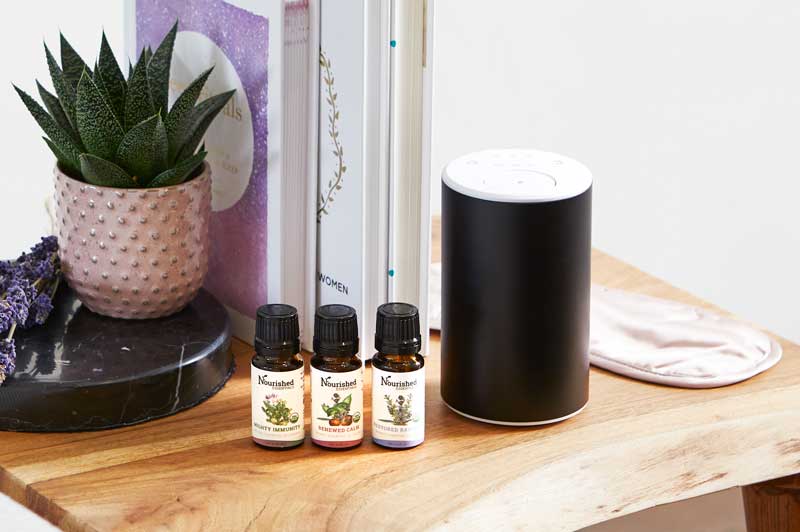Imagine drifting off into a deep, peaceful slumber as the soothing scent of lavender fills the air. Essential oils have long been used for their therapeutic benefits, but can they really help you get a better night’s sleep? In this article, we will explore the science behind essential oils for sleep and whether or not they actually work. So, sit back, relax, and let’s dive into the world of aromatherapy and its potential for a restful night’s rest.

Introduction: The Science Behind Using Essential Oils for Sleep
Many people swear by the use of essential oils for promoting better sleep, but is there any science behind this widely practiced remedy? Let’s delve into the research and uncover the secrets behind using essential oils for a restful night’s sleep.
Studies have shown that certain essential oils have properties that can help calm the mind and body, creating an ideal environment for falling asleep and staying asleep. Some of the most commonly used essential oils for sleep include:
- Lavender: Known for its relaxing and calming effects, lavender essential oil has been shown to improve sleep quality and reduce anxiety levels.
- Chamomile: This gentle essential oil is often used to promote relaxation and soothe the nerves, making it a popular choice for those struggling with insomnia.
- Frankincense: With its earthy and grounding scent, frankincense essential oil can help create a sense of peace and tranquility, perfect for winding down before bedtime.
Benefits of Using Essential Oils to Improve Sleep Quality
Many people struggle to get a good night’s sleep, whether it’s due to stress, insomnia, or other factors. One natural remedy that has gained popularity in recent years is using essential oils to promote relaxation and improve sleep quality. Here are some of the benefits of incorporating essential oils into your bedtime routine:
- Calming effects: Essential oils like lavender, chamomile, and bergamot have been shown to have calming properties that can help reduce stress and anxiety, making it easier to fall asleep.
- Natural sleep aid: Instead of relying on medication or other artificial sleep aids, essential oils offer a natural alternative that can help regulate your sleep cycle and promote better rest.
- Aromatherapy benefits: Inhaling the soothing scents of essential oils can have a powerful impact on your mood and overall well-being, helping you relax and unwind before bedtime.
Whether you diffuse essential oils in your bedroom, apply them to your skin, or add them to a warm bath, these natural remedies can be a valuable addition to your sleep routine. Experiment with different oils and methods to find what works best for you, and enjoy the benefits of a restful night’s sleep.
Key Essential Oils for Promoting Restful Sleep
There are several essential oils that have been shown to help promote restful sleep and improve overall sleep quality. These oils can be used in a variety of ways, including through diffusers, topically applied to the skin, or added to a warm bath before bedtime. Here are some of the key essential oils to consider when trying to improve your sleep:
- Lavender: Known for its calming and relaxing properties, lavender oil can help reduce stress and anxiety, making it easier to fall asleep.
- Chamomile: Chamomile oil is often used to promote relaxation and can help soothe the mind and body, making it easier to unwind before bed.
- Valerian: Valerian oil has sedative properties that can help improve sleep quality and reduce the time it takes to fall asleep.
- Sandalwood: Sandalwood oil has a rich, woody aroma that can help create a tranquil environment conducive to restful sleep.
When using essential oils for sleep, it’s important to choose high-quality oils and dilute them properly before use. Experiment with different oils and blends to find what works best for you and your specific sleep needs. Incorporating essential oils into your bedtime routine can help signal to your body that it’s time to relax and prepare for a restful night’s sleep.
Tips for Using Essential Oils Effectively for Sleep
When it comes to using essential oils for sleep, there are a few key tips to keep in mind to ensure you are getting the most out of their benefits. Here are some effective ways to incorporate essential oils into your bedtime routine:
- Diffuse: Using an essential oil diffuser can help disperse the scent throughout your bedroom, creating a calming atmosphere perfect for sleep.
- Topical Application: Some oils can be applied directly to the skin, such as lavender or chamomile, to promote relaxation and calmness.
- Mix and Match: Experiment with different oil combinations to find the perfect blend that works best for you and your sleep needs.
It’s important to note that everyone reacts differently to essential oils, so it may take some trial and error to find what works best for you. Remember to always dilute oils properly and test a small area of skin before applying them to larger areas of the body. With a little experimentation, essential oils can be a wonderful addition to your sleep routine.
In conclusion, the use of essential oils for improving sleep can be a personal and subjective experience. While some may find great relief and relaxation from these natural remedies, others may not see much benefit. It ultimately comes down to individual preference and trial and error. If you are struggling with sleep issues, it may be worth giving essential oils a try to see if they work for you. Sweet dreams!
